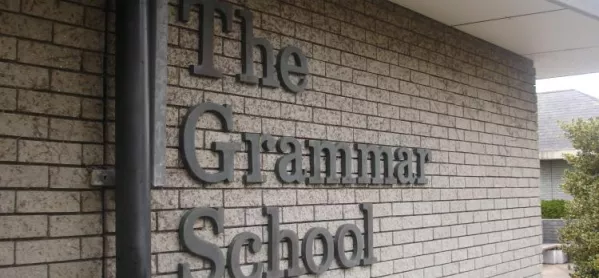Grammar schools do no better in terms of pupil achievement than other schools, according to a study.
The research suggests that youngsters at selective schools have a similar level of achievement to their equivalent peers at non-selective schools, once factors such as background and previous attainment are taken into account.
The publication of the study comes after education secretary Damian Hinds said he wanted to see existing grammar schools expand.
The law currently bans the creation of new grammar schools, and Conservative plans to change the law to allow this were dropped following last year’s general election.
Researchers used government data on more 549,203 pupils in England in 2015, looking at information on their attainment, school and background.
They found that grammar schools in England have around 2 per cent of pupils who are, or have been, eligible for free school meals, compared with an average of 14 per cent nationally.
The findings, published in the British Journal of Sociology of Education, also show that on average, grammar school pupils are less likely to have special educational needs, less likely to speak English as an additional language, more likely to be among the older children in their year group, and to live in wealthier areas.
‘Advantaged backgrounds’
Raw results suggest that grammar school pupils get higher average GCSE points scores, but once all these other factors are taken into consideration, grammar school pupils achieve around the same results as similar students in the rest of the country.
It suggests that the apparent GCSE success of grammar schools is down to pupils coming from more advantaged backgrounds and having higher academic achievement at the age of 11, the paper suggests.
Stephen Gorard, of Durham’s School of Education, said: “The progress made by grammar school students is the same as progress made by equivalent children who do not go to grammar school, on average.”
He also said: “Dividing children into the most able and the rest from an early age does not appear to lead to better results for either group.
“This means that the kind of social segregation experienced by children in selective areas in England, and the damage to social cohesion that ensues, is for no clear gain.
“This is not to decry the schools that are currently grammars or the work of their staff.
“However, the findings mean that grammar schools in England endanger social cohesion for no clear improvement in overall results. The policy is a bad one.”
The results also show that children of a Pakistani/Bangladeshi origin make up 14.7 per cent of grammar school pupils, compared with 8.8 per cent for other schools, while Chinese pupils make up 1.5 per cent of grammar school children, compared with 0.3 per cent for other schools.
Three-quarters (74.5 per cent) of grammar school pupils are from a white background, compared with 80.5 per cent for other schools, while children from a black background make up 3 per cent, compared with 5 per cent for non-selective schools.
Prof Gorard said: “The research itself is silent on why this occurs.
“We know, in the same way we know that in general girls do better than boys, that pupils from Chinese, Pakistani and Bangladeshi backgrounds have higher attainment than some other ethnic groups at school.”
“These ethnic groups also tend to have different societal and economic backgrounds, and that might explain the differences - meaning that this is not an ethnic origin issue as such.”
A Department for Education spokesperson said: “We want every child to receive a world-class education and to give parents greater choice when it comes to picking the school that’s right for them - grammar schools are a part of this.
“Around 60 per cent of these schools already prioritise admissions for disadvantaged children and we are continuing to work closely with the school sector to widen access further. Research shows that pupils from disadvantaged backgrounds make better progress across core subjects in selective schools, and attain better results.”
Want to keep up with the latest education news and opinion? Follow Tes on Twitter and like Tes on Facebook




